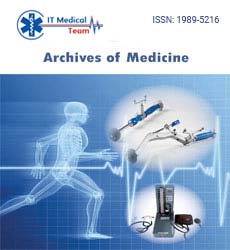Yu Zhou, Siya Kong and Zhong Jia*
Hangzhou First People's Hospital, Nanjing Medical University Affiliated Hangzhou Hospital, China
Corresponding Author:
Zhong Jia
Hangzhou First People's Hospital
Nanjing Medical University Affiliated Hangzhou Hospital, China
Tel: 86057187914773
E-mail: jiazhong20058@hotmail.com
Received date: March 20, 2017; Accepted date: March 23, 2017; Published date: March 30, 2017
Citation: Zhou Y, Kong S, Zhong J. Strengthen Supervision of Academic Science: An Uphill Struggle. Arch Med. 2017, 9:2 doi: 10.21767/1989-5216.1000204
Copyright: © 2017 Zhou Y, et al. This is an open-access article distributed under the terms of the Creative Commons Attribution License, which permits unrestricted use, distribution, and reproduction in any medium, provided the original author and source are credited.
Letter to Editor
Recently, an investigation found that major of China's clinical trials were fraudulent [1], which indeed harm the scientific property of research as well as stir globe critical criticism.
As a matter of fact, many researchers have to withdraw their published articles in 2016 due to lack of first-hand data or unrepeated result such as NgAgo gene-editing approach and unclear donor resource of some liver transplant. The root cause of the pressing issue may result from relaxed supervision of authorities and propelling of commercial profit. As a result, some papers have been withdrawn, some ones that are not withdrawn but have no influence at all, because no one would cite it.
As we all well known, China is becoming a big “SCI factory”. But it is deemed to lose more if its basic value of authenticity is far from enough or ignored by all levels of related duty departments or doubted by other researchers. The effective preventive measures are to root out underground beneficial chain and to establish a strict supervision system, aiming to punish those who dare to against the red line. The againster will lose the opportunity of carrier promotion as well as his/her fame. In addition, the international editors should forbid publishing any papers from the blacklist (critical againsters).
Doctors who are only capable of great surgery or rich practical experience are just craftsmen. The more excellent ones will conduct scientific research but not in-house research to solve the problems they discover on the operating table or clinical practice. Such research oriented toward clinical practice forge breakthroughs in overcoming difficult to treat and serious diseases, and truly promotes medical science's development. It will make clinical doctors doers but not cheater with little trick.
To the best of our knowledge, Chinese Medical Association is planning to establish an “individual patient data (IPD)” [2], thanking to big data era, which aims to ensure China's clinical trial truly transparent. It is believed to help research in China achieve value and go further.
18981
References
- Woodhead M (2016) 80% of China's clinical trial data are fraudulent, investigation finds. BMJ 355: i5396.
- Taichman DB, Backus J, Baethge C (2016) Sharing clinical trial data: A proposal from the international committee of medical journal editors. Chin Med J 129: 127-128.






